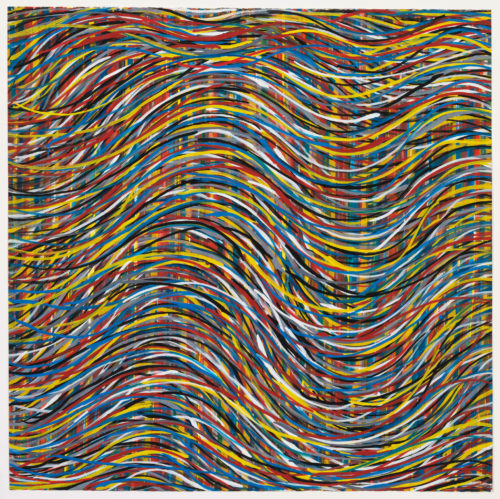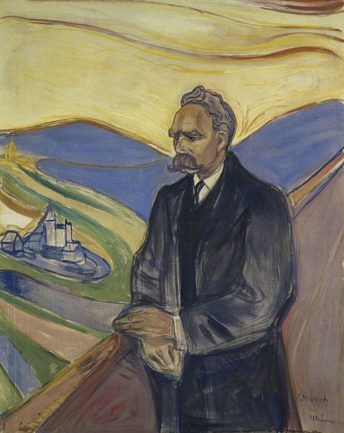
Richard Serra
“First, it should be noted that the death instinct was not introduced to account for the factor of destructiveness, as the later papers on culture and especially ‘Civilization and Its Discontents’ might lead us to believe, but to account for a set of facts which center around the compulsion to repeat.”
Paul Ricoeur (Freud & Philosophy)
“The unseen suffers precisely from its continued nonappearance in any form and desires only access to a mode of appearance.”
Jean-Luc Marion (The Visible and the Revealed)
“In one sense, the expropriation of experience was implicit in the founding project of modern science.”
Giorgio Agamben (Infancy and History)
“This is why, in the paragraph on the historical imagination, Collingwood frankly states that ‘as Descartes might have said… the idea of the past is an ‘*innate* idea’.'”
Paul Ricoeur (The Reality of the Historical Past)
I wanted to try, even if just in part, to look at the widespread dissemination of bad thinking on culture and art today. The *colorized* Greek statuary topic is a good example. I can only assume the more sober and learned scholars of ancient art are silent on this topic because it’s so obviously going to disappear at some point, gone like most fads, after having run its click-bait course. There are myriad other examples; all the stuff that comes from the WEF (Twink Harari in particular) or the endless planted stories to promote AI as a global life changing technology, one with the potential to create conscious androids or computers or whatever. I wrote last time about the James Webb Deep Space Telescope, and you could include that here, too. And all of this is tied to the rise of the new internet ecology — which is not really *new* per se, but which now forms a rather large cognitive sinkhole in modern society.
I will start with David McIvor’s article on Habermas and Freud.
“The process of ego-integration is, according to both Freud and Habermas, bedeviled by distortions that take root in intra-and intersubjective communication.Habermas followed Freud in describing these communicative breakdowns in terms of repression,which gives rise both to pathological behaviors, such as schizophrenia, and to the “pseudo-normal” or “hidden” pathologies of everyday life.While symptoms in the former case are typically obvious,the latter instances of “systematically distorted communication” are more difficult to detect and undo. They represent a “faulty organization of speech”in which the circuitry of self-reflection and intersubjective communication has been interrupted. Even in these cases, however, it is possible to detect symptoms that serve as “symbols… of a symbolic breakdown.”
David McIvor (Pressing the Subject: Critical Theory and the Death Drive)
I am very little interested in debating Habermas other than to say he is a, to my mind very representative of the end game for rationality. For Habermas, breakdowns in communication (in schizophrenia for example) can only be rectified by more and better (sic) communication.

Aapo Huhta, photography.
“Analysis shows the innate connection between (communicative) reason and an emancipatory interest that,despite resistances, inherently pursues the overcoming of privatized or distorted language and, in turn, the modification of repressive forces of production and institutional frameworks. Freud’s theory—according to Habermas—not only implies a model of successful, autonomous ego-integration but the revolutionary idea that social relations should be organized “according to the principle that the validity of every norm of political consequence be made dependent on a consensus arrived at in communication free from domination.”
David McIvor (Ibid)
The problem with this is how to define *communication*. Habermas believes pathology resides in the communicative realm of ordinary human conversation. It is, in a sense, another version of the human as machine. Just pop the hood and lets have a look inside. Check the spark plugs, the oil filter, etc. Habermas wrote of Freud’s WW2 era writing, that it “denies the origins of its categories in a process of enlightenment.” In other words, the Death Drive was unacceptable to Habermas (and to many others, certainly even today). But I would argue this is essentially because it has been so roundly misunderstood. And because the myth of ‘Enlightenment progress’ is deeply embedded in a culture that thinks everything is always about progress. The point here (because, again, I’m not wanting to write about Habermas per se) is that the state of magical thinking today, of scientism, of parody communism and of techno fetishizing are the results of ignoring that turn in Freud’s work. Habermas, and others like Axel Honneth, see pathology as failed communications, a breakdown of an ideal organized conscious whole. The problems with this idea are nearly endless, but as Paul Ricoeur (an astute reader of Freud) wrote (from his book Freud and Philosophy): “if unconscious processes can be successfully translated into conscious processes, it does not necessarily follow that the unconscious is already linguistic, just as successful translations from English to French do not imply that English is already French.” Habermas is implying a knowledge of human cognition that does not necessarily exist (again, a bit like quantum physics and cosmology imply a universe that does not necessarily exist). Habermas does not accept the subject is ambivalent (nor did Piaget or Sullivan or Erikson).

Andrea Mantegna (St Sebastian. 1480) detail.
Habermas sees ego-identity non-ontologically. Something reflected in contemporary thought, today, overall.
“…the subject can only be reconstructed “non ontologically” through a developmental account, where autonomy is conceived as a project of progressive communicative appropriation of internal and external conflicts and needs.”
David McIvor (Ibid)
Habermas (and Honneth, and pretty much all of 21st century thinking in academia) see human development in terms of completion. That there must be, needs to be, a completion at the end of the story. This also de-radicalizes Critical Theory, and it also denies that realm of unconscious urges and emotions from which Utopian energy is born. And it denies something of the imagination. It is a sort of antiseptic construct that Habermas has created, one shorn of dark urges and pessimism.
“But how is it possible to speak of a “beyond the pleasure principle,” if the hypothesis of constancy is the most general hypothesis that can be formed about the psychical apparatus? Just what does the expression “beyond the pleasure principle” refer to? It refers to the “operation [Wirksamkeii] of tendencies . . . more primitive
than [the pleasure principle] and independent of it.”
Paul Ricoeur (Freud & Philosophy)
Last blog post (God I hate the term *blog*) I wrote about St Augustine and cosmology. How contemporary cosmology often sounds remakrably like Augustine or the Pre-Socratics. This suggests that the culture has not in any meaningful way abandoned Christianity. But that Nietzsche’ famous *God is dead* meme has to be actually examined a bit (along with Freud) when trying to understand the crisis of contemporary thought.

CV Dazzle, facial camouflage to confuse surveillance technology.
“…because the admission of unpleasure into any human behavior may be regarded as the roundabout path the pleasure principle takes in order to gain ultimate dominance. { } One of the main things the neuroses have taught us is that earlier phases of development are not simply replaced by succeeding ones, but that conflicts arise between vestiges of the former and demands of the latter. The parts of instinct that are cut off from the possibility of satisfaction seek substitute modes of satisfaction now felt by the ego as unpleasure. This unpleasure is a form of pleasure that cannot be felt as such because it belongs to surpassed organizations of the libido; the neurotic’s suffering belongs to this category of unpleasure. Thus psychoanalysis teaches us to discern the pleasure principle in what is felt by the ego as unpleasure.”
Paul Ricoeur (Ibid)
The entire language (English, French, German, Italian, Spanish et al) is Christian. But more than that, Western culture is structurally infused with Christianity. And scientific atheism increasingly sounds like, ironically, the writings of early medieval christian mystics. But the idea of history itself is cross pollinated with Greek notions of history. Before that, if we are to examine the assumptions behind ideas of governance, it is to Rome that one must turn.
“The good citizen, in the Republic, was the citizen acknowledged to be good. The Romans recognised no difference between moral excellence and reputation, having the same word, honestas, for both. The approval of the entire city was the ultimate, the only, test of worth. { } Praise was what every citizen most desired – just as public shame was his ultimate dread. { } Gruelling and implacable though the contest to excel invariably was, there could be no place in it for ill-disciplined vainglory. To place personal honour above the interests of the entire community was the behaviour of a barbarian – or worse yet, a king.”
Tom Holland (Rubicon: The Triumph and Tragedy of the Roman Republic)

Francisco de Zurbarán (Jacob and his Sons. *Dan*.1640s) detail.
The recent suspension of due process, democratic electoral ideals, and the imposition of house arrest under cover of a health emergency is something Giorgio Agamben has been particularly articulate about. The new state of exception, what Agamben calls the *health terror*, feels like the last assault, in western society, against its citizens. It is also the final act of the collapse of rationality.
The abandonment of Freud and Marx, both, was almost necessary for western thought; necessary to keep from self immolation, cognitively. Or, rather, the abandonment of Freud and Marx was simply that those two thinkers, perhaps above any others, most succinctly detailed and prophesied the contemporary mind. But the situation today has been built on about 80 years (probably more like several hundred) of shrinking experience and, for lack of a better description, a dilution of the metaphysical. Christian societal structures (and language) without God, or even a metaphysics, are solipsistic ethical dead ends. The rise of a narrow scientism has aligned perfectly with monopoly capitalism, and an empty vacuous liberalism.
I think an interrogation of contemporary sophistry starts with the loss of history, and simultaneously with the loss of ambivalence (which means the unseen, the sublime, the transcendent). The other truth is that such an interrogation means a return to philosophy. And to be clear, I consider Freud a philosopher and I consider Critical Theory, at least in the work of Adorno and Benjamin, to be philosophy.

Emperor Caracalla. 212-217. Luna marble. (Roger Ulrich photography)
Now, Habermas in the 70s was a critic of scientism, but by the 90s was a proponent of same. The intellectual currents were pushing many thinkers into positions of inoffensive bland de-politicized accommodation to the status quo. Today, the laughable ignorance of a Jordan Peterson passes for thinking. Or rather, is that which media presents as serious thinking. It obviously is not. On the left, there is a paralysis of thought that amounts to little more than policing social media.
In the west, in the U.S. and Europe, the left is moribund and decomposing before our eyes. There are always exceptions. But my point is that to understand the state of metaphysics, or its lack, Marx remains an irreplaceable guide. And Freud remains the other critical guide in entering this intellectual underworld. Third, I would add Adorno. The contemporary intellectual climate (sans Freud and Marx) is cloistered and oddly passionless.
The other key issue here is Christianity, and by extension History per se. The state of the world today is partly what it is because Nazism was never really defeated. It was absorbed and disguised, and rebranded. The Third Reich is fully alive in western thought, and more, in what is left of the West’s imagination. And the Reich was the culmination of trends that were in development for two hundred years. Maybe, really, since the dawn of global trade. The closing of the commons in England, the advent of sea trade and travel, and the growth of institutional authority all contributed the gradual intensification of class tensions, the birth of a slave trade, and the exploitation of the periphery. The other difference today is the state of the opposition. No avant garde, no alternative press, and throughout everything (as Debord knew) the rise of a particular kind of unreality.
Of course, even 70 years ago CK Chesterton noted that modern man was “full of the old Christian virtues gone mad.” The modern project (sic) was recognized as dysfunctional as far back as the Industrial Revolution. In 2019, French theologian Remi Brague wrote….
“We still live in a “guilt-culture” (Ruth Benedict). It even looks like we are witnessing a weird comeback of the great flagellant processions that took place during the Black Death, the difference being that we prefer to flog our ancestors rather than ourselves. In any case, repentance is separated from the hope of being forgiven. We thereby get some sort of perverse sacrament of confession without absolution. To be sure, acknowledging one’s shortcomings or even crimes and asking for forgiveness is a noble and necessary behavior. But it verges on the pathological when there is no authority to pronounce the liberating words of absolution.”
Remi Brague (Curing Mad Truths).

Sol LeWitt
The war on rationality began around the end of WW1 I would say. It intensified after WW2 and went into a hyper acceleration beginning in the 1980s. How did that happen? and why? The answer begins, in a strange way, with Nietzsche.
“It is not only in clothing and appearance, in outward form and emotional make-up that human beings are the product of history. Even the way they see and hear is inseparable from the social life-process as it has evolved over the millennia. The facts which our senses present to us are socially performed in two ways: through the historical character of the object perceived and through the historical character of the perceiving organ.”
Max Horkheimer (Traditional and Critical Theory) 1937.
Fabian Freyenhagen has an essay on Critical Theory, and its relationship to philosophy, which topic is only mildly interesting. But his gloss on this, on the Frankfurt School in particular, is very incisive. And he quotes Marx (in an effort to make clear the enormous influence of Marx on Horkheimer and the other Frankfurt thinkers). That quote is (from a letter to Ruge): “the self-clarification (critical philosophy) of the struggles and wishes of the age.”
Self clarification. So, that historical character of the object perceived means, among other things, Christian, Roman, and Greek. And all three shot through the lens of the middle ages. Now there is another quote of Marx, far better known, that has been used for all manner of purpose, not the least of which is to be grant permission for anti intellectualism. That is the famous ‘philosophers only interpreted the world, but the point is to change it.’.(I paraphrase). This quote has always seemed problematic to me. I have touched on this before vis a vis Marcuse’s sort of answer essay — but the point is that, as Freyenhagen notes…
“Horkheimer suggests that philosophy labours under a mistaken self-image of theorising as self-sufficient and independent, but that, nonetheless, it also contains a ‘camouflaged utopia’ in its ‘hypostatization of Logos’ insofar as ‘reason should actually determine the course of events in a future society’.”
Fabian Freyenhagen (Critical Theory’s Philosophy)

Max Cole
There is a tendency that arose after WW2 in academic philosophy that looked to criticize (in some fashion) the ivory tower syndrome of academia. Which in and of itself was and is much needed. But the problem became, and it became very acute after about 1980, a kind of snide anti dialectical put-down of philosophy itself — because, so it went, such navel gazing served no purpose.
Thinkers such as Adorno and even Benjamin, were constantly referred to as elitist. The problem became that metaphysics itself was deemed passe, pointless, and self indulgent. Often, I have taught theory in theatre, and had students say but what can we do? (this question addressed to all manner of problem). And my answer is always, ‘we are doing something’. We are doing something by being here discussing this.
This shriveling up of philosophy took part, in particular, in the US. But it was set against the rise of post structuralism and Heidegger studies. Both seemed to get a pass, for reasons I honestly am not sure about at all. But it would have been clear fifty or a hundred years earlier that theory can reveal something indicative of social tendencies. Not theory of social practices (sociology grew at a fantastic rate in the U.S.) but ontology, epistemology, and the philosophy of history.
Adorno, who is most often pointed at in terms of both elitism AND being anti-philosophical, wrote “‘for the truth content of a problem is in principle different from the historical and psychological conditions out of which it grows’.” Adorno saw (per Freyenhagen) that pointing out that Kant was a pietistic male of a certain class etc etc had only limited metacritical value. Adorno saw a clear distinction between philosophy and science. In science the conclusions are static, finished, completed. In philosophy they are never so.

Omar Galliani
Adorno also saw a problem with science in terms of its categories. For philosophy must always question the categories that make up its premise. There are no pre-existing answers waiting.
“For all the benefits modern civilisation brings, it is – according to Adorno – a ‘triumphant calamity’ because it is characterised by a decoupling (or even inversion) of means and ends that is most clearly exemplified in the death camps of Auschwitz.”
Fabian Freyenhagen (Ibid)
And here is a critical aspect of Adorno. And it brings this discussion back to Freud, firstly.
“Moreover, while genesis and validity cannot simply be equated, Adorno thinks that something from any genesis remains inscribed in and structures to a certain extent what has emerged – indeed, (practical) reason becomes irrational when it leaves behind its mooring in ‘naked physical fear, and the sense of solidarity with what Brecht called ‘tormentable bodies’.’”
Fabian Freyenhagen (Ibid)
The human animal emerged out of the naked need for self preservation. This long journey included in some dialectical fashion the development of drives or instincts. Adorno had a three headed criticism of philosophy’s wrong turns, starting with instrumental reason (positivism, too), then capitalism, and then identity thinking. He placed enormous emphasis on capitalism, on the organization of production, and what this would come to mean for the human psyche. The identity thinking aspect is more complicated. For all conceptual analysis means identification. Trying to put something under the umbrella of something else; the particular under a concept or set of concepts.

Luigi Otani
“–the text is meant as a trigger for reflection, not as reporting about reflection that has taken place.”
In a sense, what Adorno is doing, stylistically, can be compared to the difference in visual arts between illustration and painting. The illustrator seeks neat summations, conclusions to the idea (that he is illustrating). It is the difference, really, between entertainment and art.
One certainly wonders what Adorno would have written regards algorithms.
“In the midst of the civil rights movement in the 1960s, Martin Luther King Jr repeatedly endeavoured to bring to the attention of his growing audience what he saw as the debilitating effect of an homogenised academic practice which increasingly appealed to the language of ‘social pathology’ to account for the maladjustment of individuals and communities to established society and the norms of its liberal institutions. Made fashionable both in socio-political sciences and psychology after the publication of Myrdal’s An American Dilemma (1944), the notion of social pathology quickly became a valuable currency in the academic market of ideas. As King argued, while the general economy of the most oppressive mechanisms of domination of liberal society were being blatantly ignored, if not outrightly dismissed by academic circles and policy makers (systematic racism and structural violence directed at the poor for instance), the scholarly language of maladjustment was increasingly being used to pathologise black lives. According to the latter, it did so by recurrently suggesting that societal progress or institutional reform around expandable civil rights was itself impeded by these communities’ failure to properly ‘assimilate’ to the moral fabric of established society and the proper rules of democratic discourse.”
Denis C. Bosseau (The Revolt of the Maladjusted: Defacing the Currency of Social Pathology Diagnosis in Contemporary Critical Theory)

Cesar A. Martinez
This has, of course, not gone away. But with the Covid lockdowns and manufactured ersatz health emergency, the same arcane language of maladjustment is being employed by the state and its armies of influencers and celebrities. The disfiguring of conceptual thought is additionally situated within a horizon built by the Christian Church. Even as the Church itself was self interrogating these structures. The McCarthyite hysteria has now migrated to social media. The intensity of the anti-communism is actually stronger and less rational, even, than during HUAC. The devotion to a Christian idea of God, was, however, waning. The rise of theosophy and various precursors to new age occult beliefs existed alongside the Church but as a kind of alternative faux belief. Much of this theosophic occult new age mysticism was profoundly tied into pure identity thinking. It was anti collective. Anti vaxxer is the new Commie.
It is important to remember, too, the wholesale failure of the left (or 90% of it) in the face of the Covid narrative. And I am reminded of a passage from Marx’s Economic and Philosophic Manuscripts , written early in his career and never published during his lifetime. He writes about what he calls *crude and thoughtless communism*;
“The still rather crude and thoughtless communism wishes to destroy everything that is not capable of being possessed as private property by all; it wishes to abstract in a violent way from talent, etc. Physical, immediate possession is for this type of crude communism the only goal of life and existence; the category “worker” is not transformed-and-done-away-with (aufgehoben) but extended to apply to everyone; the relation of private property remains the relation of the community to the world of objects…This form of communism, by negating the personality of the human being everywhere, is precisely nothing but the consistent expression of private property, which is this negation. The envy that forms part of this form of communism, an envy that is universal and has constituted itself as a power, is the hidden form in which greed takes hold and satisfies itself, and it does so merely in a different way from the way in which such greed satisfies itself in current forms of society.”
Karl Marx (Economic and Philosophic Manuscripts)
It is important, in this early work from Marx, to note that he makes clear he is aware, exactly, of the abstracting of individual ‘talents’ (we could say the metaphysics of the individual) into purely economic calibrations as the basic crime of capitalism, but he is also aware that this crude and thoughtless communism does much the same thing with an added injection of resentment and envy. This particular branch of communism/socialism also trends toward the authoritarian. It MUST police the revolution. I can think of a dozen ‘leftists’ today, who during the covid state of exception, followed exactly, to a T, what the younger Marx described above.

Merrick Morton, photography (Oaxaca, Mexico)
“Darwin, when he contemplated the natural world, found in it too many examples of cruelty to believe that they might ever have been the result of conscious design. One more than any other haunted him: a species of parasitic wasp. ‘I cannot persuade myself that a beneficent & omnipotent God would have designedly created the Ichneumonidæ with the express intention of their feeding within the living bodies of caterpillars. { } A year earlier, Darwin had published a book in which the life cycle of the ichneumon wasp had similarly featured. The thesis elaborated in On the Origin of Species was liable to seem, to any supporter of natural theology, a profoundly unsettling one. ‘It may not be a logical deduction,’ Darwin had written, ‘but to my imagination it is far more satisfactory to look at such instincts as the young cuckoo ejecting its foster-brothers, — ants making slaves,-the larvae of ichneumonidae feeding within the live bodies of caterpillars, — not as specially endowed or created instincts, but as small consequences of one general law, leading to the advancement of all organic beings, namely, multiply, vary, let the strongest live and the weakest die.’ Here, with this theory of evolution, he was inflicting on natural theology something of the hideous fate visited by an ichneumon on its host.”
Tom Holland (Dominion: The Making of the Western Mind)

Etching 1792, based on earlier woodcut, of Matthew Hopkins, Witch Hunter.
“Thanatos reveals the meaning of Eros as the factor that resists death. The sexual instincts are “the true life instincts. They operate against the purpose of the other instincts, which lead, by reason of their function, to death; and this fact indicates that there is an opposition between them and the other instincts, an opposition whose importance was long ago recognized by the theory of the neuroses.”
Paul Ricoeur (Ibid)
The fight against death is not an internal affair. It is always the desire of the other that sets in motion this resistance.
“Freud does not look for the drive for life in some will to live inscribed in each living substance: in the living substance by itself he finds only death. “
Paul Ricoeur (Ibid)
So how does one factor this into History, into Rome, Greece, and Darwin, say. I’m speaking of the Western mind here. How did Auschwitz come to reveal the putrefaction of the collective body. A metaphor that is nearly literal. The necrosis of the societal body, then. Something of the psyche died, withered in some cases, and in others it has simply been absorbed into some new form of super-ego. A ruthless vicious super ego. Today, Ukraine, in the image of the Kiev regime, is applauded throughout the western media. The hero of these Ukrainian nationalists if Stephan Bandera. The pogroms set in motion by Bandera and his followers included lynching children in various Polish villages. How more profound can be the emotional and moral disconnect in a society? The loss of a belief in what created those Baroque or Gothic cathedrals turns them into tombs, into sepulchers. And the citizen of societies that no longer believe in anything are turned into some form of zombie.
“Is it really the case that, apart from the sexual instincts, there are no instincts that do not seek to restore an earlier state of things? that there are none that aim at a state of things which has never yet been attained?”
Sigmund Freud (Beyond the Pleasure Principle)

Mosterio da Batalha, Portugal. Completed 1416 (David Letts, photography)
But this is tricky, this saying ‘believe in anything’. For what does that mean, exactly? There is also (on which I have written before) assault on reason, or rationality. Capitalism, the organization of production, the effects of which have been profound as Capitalism’s durability continues to surprise Marxists. How does that factor into the shrinking of experience, to the strange autism of screen habituation.
“What is important is the connection discovered between guilt and death. We touch here upon the most extreme consequence of the relationship between the superego and the id. The instinctual character of the superego implies not only that the superego contains libidinal residues from the Oedipus complex, but that it is charged with destructive rage thanks to the defusion of the death instinct. This goes very far, even to the point of diminishing the importance of instruction or reading, of the “things heard”—in short, of word-presentations—in the development of conscience, to the profit of the great obscure forces rising from below. How is it, Freud asks, that the superego manifests itself essentially as a sense of guilt and develops such extraordinary cruelty toward the ego, to the extent of becoming “as cruel as only the id can be”? The case of melancholia leads us to think that
the superego has taken possession of all the available sadism, that the destructive component has entrenched itself in the superego and turned against the ego: “What is now holding sway in the superego is, as it were, a pure culture of the death instinct.”
Paul Ricoeur (Ibid)
What does it mean to say *I believe*? I believe in the results of a math equation? Two and two is four. I believe that. I have to. Do I believe the *results* of string theory equations? Not so much, no. I believe in the math (I mean I believe those working out the equations are probably right. Yes.) But do I believe those results have any relevance? No. So here is the problem. One of the problems I am trying to point toward here.

Edvard Munch (Portrait of Nietzsche)
” By the term “past”, I do not mean the sum of lived events, but their internal rewriting—as in the family romance—based on a first narrative. I use the term narrative on account of the homology of form and structure between this internal story and a novelistic elaboration. The first narrative, the first real “past” of the individual, is elaborated at the Oedipal stage; that is to say, when all the earlier stages are taken up again and reworked within the framework both of desire, which is henceforth constantly mediated, and of the castration complex. It is as though the real events, once they have been lived, have less importance than the internal narrative that is elaborated and re-elaborated from them. From then on, and throughout the greatest part of his existence, the subject continues day in day out to elaborate his “past”, that is, the precedent of truth for times to come. “
Michel de M’Uzan (Death and Identity)
Increasingly the narratives for society as a whole are sort of sub-contracted by computers. Policy and propaganda are both computer tested. And this reminds me of remarks by Agamben on our collective loss of experience…

Brook Andrew
“On the contrary, it is the character of the present time that all authority is founded on what cannot be experienced, and nobody would be inclined to accept the validity of an authority whose sole claim to legitimation was experience. (The youth movements’ denial of the merits of experience is eloquent proof of this.) Hence the disappearance of the maxim and the proverb, which were the guise in which experience stood as authority. The slogan, which has replaced them, is the proverb of humankind to whom experience is lost. This does not mean that today there are no more experiences, but they are enacted outside the individual.”
Giorgio Agamben (Infancy and History; the Destruction of Experience)
Tourists taking selfies in front of famous paintings at museums. Or in front of cathedrals. Or anywhere *recognizable*, really. And clearly the forces of production promote screen experience in all contexts as safer, and generally just better, because the screen tourist or student will not have to brush shoulders with the underclass. Risk averse. At what point did the reification become auto-reification?
“The distinction between logical truths and truths of sufficient reason (which Leibniz formulates thus: ‘When we expect the sun to rise tomorrow we are acting as empiricists because it has always been so until today. The astronomer alone can judge with sufficient reason’) subsequently sanctions this condemnation. Because, against repeated claims to the contrary, modern science has its origins in an unprecedented mistrust of experience as it was traditionally understood (Bacon defines it as a ‘forest’ and a ‘maze’ which has to be put in order). The view through Galileo’s telescope produced not certainty and faith in experience but Descartes’s doubt, and his famous hypothesis of a demon whose only occupation is to deceive our senses.”
Giorgio Agamben (Ibid)

Mary Heilman
Experience, reason, and desire. In their place we find experts and verifications, solipsistic gibberish, and sex negative narcissism.
The historical engine for these degradations is the reason Marx, Adorno and Freud are relevant. The reason that a compromising and diluted form of critical theory was examined here (Habermas). It is not, again, an accident that hostility today is directed at Marx, Adorno and the first generation Frankfurt School, and at Freud perhaps most of all. That all these thinkers are, additionally, misused should come as no surprise. The hostility is troll farm stupid, its also just rather obvious psy op stuff. If one thinks the CIA doesn’t stoop to these levels, well, think again.
“The idea of experience as separate from knowledge has become so alien to us that we have forgotten that until the birth of modern science experience and science each had their own place. What is more, they were even connected to different subjects. The subject of experience was common sense, something existing in every individual (Aristotle’s ‘judging principle’ and the vis ‘aestimativa’ of medieval psychology, neither of them quite what we mean by good sense), while the subject of science is the noits or the active intellect, which is separate from experience, ‘impassive’ and ‘divine’ (though, to be precise, knowledge did not even have a subject in the modern sense of an ego, but rather the single individual was the ‘subjectum’ in which the active, unique and separate intellect actuated knowledge). It is in this separation between experience and science that we have to see the meaning- an extremely concrete one, in no way abstruse – of the disputes dividing Aristotelian interpreters in late Antiquity and the Middle Ages on the singularity and separation of the intellect and its communication with the subjects of experience. Mind [nous] and soul [psyche] are not one and the same thing for ancient thought (nor for medieval thought, at least up to Aquinas), and the intellect is not, as we are accustomed to think, a ‘faculty’ of the soul: it does not belong to it in any way, but is ‘separate, individuated, impassive’, according to the celebrated Aristotelian formula, and communicates with it to bring about knowledge.”
Giorgio Agamben (Ibid)

Lisette Model, photography (Reno, 1949)
The loss of the Tragic intersects at this point. For Aeschylus or Sophocles, the idea is tied into God(s), but more to a ceremonial and ritualistic control of repetition. Theatre precedes religion, and the Church certainly. Theatre is the ground floor for repetition. For trauma has always existed.
“…the humanistic restoration of Antiquity was a restoration not of classical Antiquity but of the culture of late Antiquity, in particular of Neoplatonism and Hermeticism. Thus a critique of mysticism, astrology and alchemy must necessarily imply a critique of science, and only the recovery of a dimension in which science and experience were each to find their own place of origin could prevail over the rationalism/irrationalism opposition. In the Mysteries, the conjunction of experience and knowledge consisted of an event without speech, which culminated in the death and rebirth of the silenced initiate.”
Giorgio Agamben (Ibid)
And here we arrive at the point of all this:
“And it is this substantive I, in which the union of nous and psyche, experience and knowledge, takes place, that provides the basis on which later thought, from Berkeley to Locke, will build the concept of a psychic consciousness replacing the soul of Christian psychology and the nous of Greek metaphysics as a new metaphysical subject. The transformation of its subject does not leave traditional experience unchanged. Inasmuch as its goal was to advance the individual towards maturity- that is, an anticipation of death as the idea of an achieved totality of experience- it was something complete in itself, something it was possible to have, not only to undergo. But once experience was referred instead to the subject of science, which cannot reach maturity but can only increase its own knowledge, it becomes something incomplete, an ‘asymptotic’ concept, as Kant will say, something it is possible only to undergo, never to have: nothing other, therefore, than the infinite process of knowledge.”
Giorgio Agamben (Ibid)

Andrew Brischler
And so, the first implication of these shifts is the downgrading of *imagination*. What was once, in Antiquity, valued above all other attributes of the subject, the birth of *science* pushed to the sidelines. (to employ a perfectly apt football metaphor). Agamben sees Kant as the last place where experience was accessible (as a topic). I might debate that, but only slightly (and probably in the next post). There is a complex trek from Kant (by way of Hegel to an unavoidable degree) to Joyce and Beckett, and to Freud and Kafka. And, most irritatingly, in a sense, to Lacan. But that is for another post. This is perhaps Agamben’s most profound book, and unsurprisingly among his least popular. That Lacan saw the unconscious as, structurally at least, identical to language raises a huge number of questions. There is also, in Agamben’s book, a chapter on letters between Adorno and Benjamin. A chapter so dense I have not yet quite figured out on whose side Agamben lands in that debate. Perhaps neither. But the debate is about dialectics. And hence about Hegel and Marx. And it IS a critical question, this one of base and superstructure, and praxis. But here my point is more to do with how the hollowed out men of contemporary life reflect or have been created (literally) by hollow institutions, hollow forms, and hollow logic.
I was pleased and proud to take part last week in a conference on Covid vaccines. The entire two day conference (at which I spoke, among almost a dozen others) was filmed and once that film is edited there will be time for a full analysis. I will leave you with a tidy summation of the left’s failures in this by Christian Parenti:
https://thegrayzone.com/2022/03/31/left-covid-lockdowns-mind-autopsy/
Here is a short overview of the Stockholm conference by an alternative Swedish paper…(I speak briefly).
https://www.vaken.se/intervjuer-och-ideer-fran-lakaruppropets-konferens/
To donate to this blog use the paypal button at the top of the page. Donations also help keep Aesthetic Resistance podcasts going

Excellent post.
“Habermas sees ego-identity non-ontologically. Something reflected in contemporary thought, today, overall.”
What does this mean, how does he view ego-identity?
“Habermas (and Honneth, and pretty much all of 21st century thinking in academia) see human development in terms of completion. That there must be, needs to be, a completion at the end of the story.”
Yeah, this is a post-Christian thing again. You even see it with Deleuze. While Catholic philosophy emphasized completion, it was within, or in relation to, the transcendent, and not something immanent within society’s or the individual’s own grasp – whereas Enlightenment affirms an immanent completion which necessarily must be cashed out in specific, stagnant and reified terms. By being immanently definite, it inevitably cuts off all other possible realities. This is the project of progressive utopianism.
It’s actually reminiscent of Pelagianism, an ancient position criticized by St. Augustine since it emphasized the capacity of human agency to approach the divine.
Exactly as you say:
“This also de-radicalizes Critical Theory, and it also denies that realm of unconscious urges and emotions from which Utopian energy is born. And it denies something of the imagination. It is a sort of antiseptic construct that Habermas has created, one shorn of dark urges and pessimism.”
Imagination and the potential unrealized realities get implicitly thrown out through the very notion of immanent completion. That’s precisely why i love certain aspects of 1920s dadaism, this was their main gripe in a sense.
“The abandonment of Freud and Marx, both, was almost necessary for western thought; necessary to keep from self immolation, cognitively. Or, rather, the abandonment of Freud and Marx was simply that those two thinkers, perhaps above any others, most succinctly detailed and prophesied the contemporary mind. But the situation today has been built on about 80 years (probably more like several hundred) of shrinking experience and, for lack of a better description, a dilution of the metaphysical. Christian societal structures (and language) without God, or even a metaphysics, are solipsistic ethical dead ends. The rise of a narrow scientism has aligned perfectly with monopoly capitalism, and an empty vacuous liberalism.”
Exactly! There’s a barren inwardness that not only rejects the transcendent, but even the indefinite immanent possibilities of the present world. And I think this gives us fascism. I think this implies an affirmation of a certain reified mode of being as objective perfection, as an ideal state of completed nature – yet a nature where there is no “outside”, where there’s no view to the transcendent to let light and air inside. Where’s that image of Hitler in the degenerate art exhibition? https://en.wikipedia.org/wiki/Degenerate_Art_exhibition No, it was Goebbels of course.
And brilliant to connect the death of reason to this development. Enlightenment reductionism namely sells itself as the pinnacle of reason, but this “hyper-rational” approach is not really rational. It’s, as you put it, a solipsistic dead end. Because reason must by definition be open to the transcendent, and to the indefinite set of compossible possibilities, so rational thought is implicitly rejected by this immanentizing of the perfect, the notion that completion is nothing more than a dead prison universe.
Rational thought rests on actualities that cannot be eliminated and reduced to objective data, it presupposes actual agency and the phenomenal presence of an observer. And this gets us right back to the narratives of artificial subjectivity, which really only reduce to the notion of a completely dominated subjectivity, a personhood thoroughly dominated and controlled by capital, by the “immanentizing completion”.
In your essay you mention how fascism has not disappeared.
Someone once told us that when fascism (inevitably) comes to America it will be very noisily shouting about freedom and brandishing a Bible and rosary beads in the air.
In my opinion this outfit and its Manifesto which includes lots of back-to-the-past Christian (especially Catholic) traditionalists is deeply fascist
http://www.project2025.org
I think they are, but then I think the Democratic Party is , too.
“Christian societal structures (and language) without God, or even a metaphysics, are solipsistic ethical dead ends. The rise of a narrow scientism has aligned perfectly with monopoly capitalism, and an empty vacuous liberalism.”
It’s serendipitous that I read the above after incredulously finding this:
https://www.theguardian.com/lifeandstyle/2023/feb/02/i-knew-i-wanted-to-stay-here-for-the-rest-of-my-life-how-london-got-its-first-lgbtq-retirement-community
“‘I knew I wanted to stay here for the rest of my life’: how London got its first LGBTQ+ retirement community”
A “LGBTQ+ retirement community”???? What does it even mean? A glance reveals a vastly depressing vision of tremendously affluent liberals who, under the guise of embodying a “marginal” lifestyle, have carved themselves a pleasant little retreat where, as the transgender rhetoric puts it, they can “feel safe” and protected from “hate” as they indulge their luxuriantly vacant infantile obsessions.
hahaha, oh man, you are so right. Its this new affluant world view. And they are embracing the new surveillance state and applauding stuff like 15 minute cities.
Have you read Gillian Rose and/or Martin Hagglund?
I know of Rose through her writing on Adorno. And Hagglund I only know by name. But i will check him out.